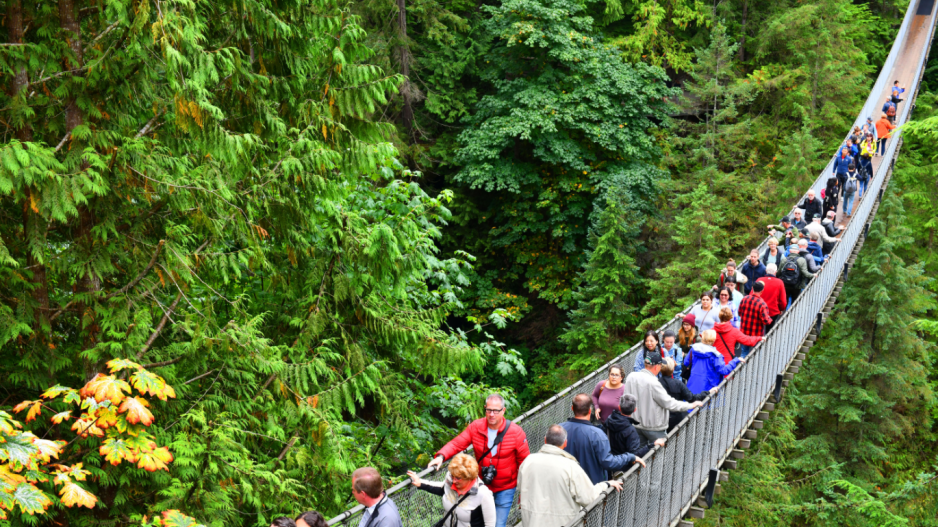The Conference Board of Canada’s latest Travel Markets Outlook, released January 17, paints a rosy outlook for the Canadian and Vancouver tourism sectors.
It projects that Canada will welcome 2% more overnight visitors from within Canada and international markets in 2019. The think tank projected an even higher increase for Vancouver in 2019 – a 3.3% jump in overnight visitors.
The report did not mention ratcheted up tensions between Canada and China, which in the last week have prompted both countries to release travel advisories, warning citizens against travelling to the other country. Nor did the report touch on the political uncertainty in the United Kingdom, which some fear will devolve into economic chaos if the country is unable to forge a trade deal with the European Union by March 29, when the U.K. is set to leave that economic union. That scenario could hit Britons' discretionary spending.
Outside of visitors from the U.S., China and the U.K. were the second and third biggest sources of international visitors to B.C. in 2018, with 285,521 visitors and 157,369 visitors respectively.
Business in Vancouver on January 16 asked B.C. Tourism, Arts and Culture Minister Lisa Beare if she was concerned about a potential hit to the province’s visits from Chinese nationals, following the Chinese government’s travel advisory to warn citizens against travelling to Canada.
She did not answer that question but sent back a statement via email that read: “China is an important tourism market for our province, as British Columbia welcomes hundreds of thousands of people from China each year. We look forward to continuing to welcome Chinese travellers to B.C. in 2019 and beyond.”
Part of the Conference Board’s optimism stems from what it called its “travel intentions survey.”
That survey found that “a growing share of Canadian households plan to take a winter vacation, and among those, a slightly higher share plan to stay in Canada for their longest-duration trip.”
The Conference Board added that growth from the U.S. and overseas markets is expected to strengthen in 2019, as travel price inflation eases and “a favourable exchange rate for many international markets remains.”
Analysts at Toronto-based CIBC Capital Markets on January 15 back up the Conference Board’s prediction that the Canadian dollar will not rise in 2019.
Those analysts predict that the dollar will fall in the coming weeks and they said that they have told clients to sell the Canadian dollar.
“Tourism activity in 2018 was weighed down by a number of factors, including rising travel prices, the weaker economic environment and lack of major events like those that happened in 2017,” said Greg Hermus, associate director for the Conference Board’s Canadian Tourism Research Institute. “Fortunately, 2019 should see stronger growth in tourism activity thanks to more modest increases in travel prices and easing uncertainty surrounding trade negotiations.”
Vancouver is expected to have a better 2019 for visitor growth than the country as a whole because of what the Conference Board’s report called “the projected robust economic growth in the province and strong influx of tourists from overseas markets.”
It noted that a potential challenge to future growth is the prospect of worsening wildfires, which in the past couple years have left a heavy lingering haze over the city and surrounding areas during fire season.




